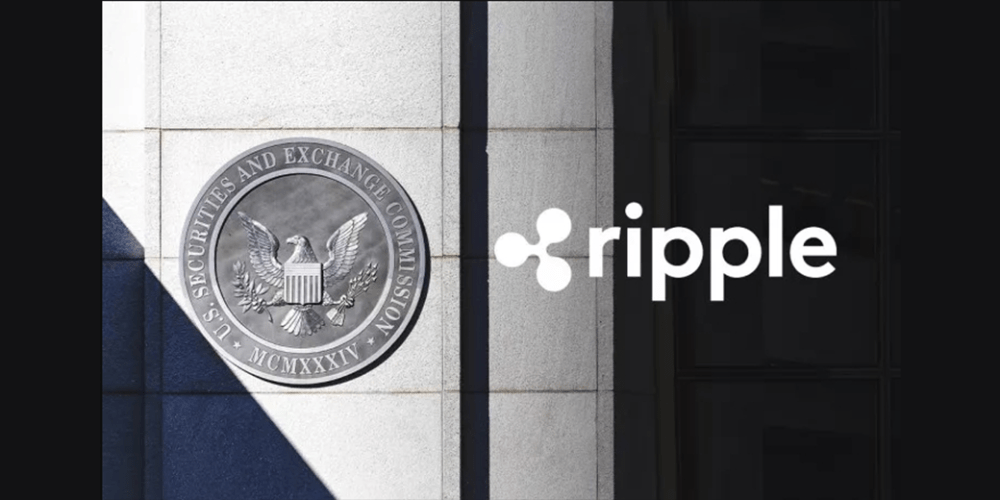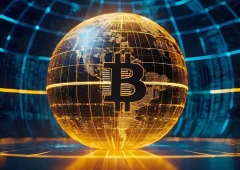Ripple and SEC Near Settlement as Legal Battle Winds Down
13.03.2025 8:00 2 min. read Kosta Gushterov
The legal battle between Ripple and the U.S. Securities and Exchange Commission (SEC) appears to be nearing its conclusion, with reports suggesting that both parties are finalizing the terms of a resolution.
The lawsuit, which dates back to 2020, accused Ripple of selling XRP without registering it as a security. Although a 2024 ruling granted Ripple a partial victory, the company was still ordered to pay a $125 million fine.
According to Fox Business journalist Eleanor Terrett, negotiations have prolonged the finalization of the case, as both sides work through specific details—particularly regarding the financial penalty. Citing sources familiar with the discussions, Terrett indicated that Ripple’s legal team is pushing for more favorable terms.
A key point of contention revolves around whether Ripple should accept the previous court ruling, which not only imposed the hefty fine but also prohibited the company from selling XRP to institutional investors.
Reportedly, Ripple’s argument is that if the SEC is shifting its stance on crypto enforcement under new leadership, firms previously targeted should not be held to past penalties. Agreeing to the court’s decision as it stands might imply an admission of wrongdoing, even as the SEC itself appears to be reassessing its regulatory approach.
Given the unprecedented nature of the situation, the resolution process has taken longer than expected. Legal analyst Jeremy Hogan, who has closely followed the case, recently speculated that a final decision could arrive by May.
Forget About Network Congestion Problems With Solaxy
Solaxy ($SOLX) is revolutionizing blockchain technology by offering the first Layer-2 solution on Solana. This project significantly improves speed and reduces transaction fees, solving network congestion problems.
Solaxy’s advanced rollup architecture shows strong potential to optimize transaction speeds and reduce congestion-related inefficiencies on Solana. The project’s approach reduces congestion and ensures smooth execution, even during peak activity. For traders, this means faster and more reliable transactions, preventing failed swaps.
Beyond improving transaction efficiency, Solaxy is expanding interoperability between Solana and Ethereum. The $SOLX token functions as a multi-chain asset, allowing users to engage across both ecosystems. This provides access to Ethereum’s liquidity while benefiting from Solana’s speed and cost efficiency.
-
1
Tether’s Hypothetical IPO Could Value It Above Coca-Cola, CEO Suggests
10.06.2025 11:00 1 min. read -
2
UK Regulators Unveil PISCES – A New Era for Private Share Trading
11.06.2025 15:00 2 min. read -
3
Trump Turns 79 With Billions in Crypto and a $45M Parade
14.06.2025 22:00 2 min. read -
4
Polygon Breaks from Decentralization as Sandeep Nailwal Assumes Full Control
11.06.2025 20:00 2 min. read -
5
KuCoin Plants Its Flag in Bangkok With a Licensed Thai Exchange
14.06.2025 13:00 1 min. read
At Least Five Law Firms Target Former Strategy Over Misleading BTC Risk Disclosures
Bitcoin-focused investment firm Strategy Inc. (formerly MicroStrategy) is facing mounting legal pressure as at least five law firms have filed class-action lawsuits over the company’s $6 billion in unrealized Bitcoin losses.
SoFi Returns to Crypto with Trading, Staking, and Blockchain Transfers
Digital banking platform SoFi Technologies is making a strong return to the cryptocurrency space, relaunching its crypto trading and blockchain services after stepping away from the sector in late 2023.
Chinese Tech Firms Turn to Crypto for Treasury Diversification
Digital assets are gaining ground in corporate finance strategies, as more publicly traded companies embrace cryptocurrencies for treasury diversification.
Ripple Faces Legal Setback as Court Rejects Bid to Ease Penalties
Ripple has been dealt another legal blow after a federal judge rejected its attempt to ease court-imposed restrictions and penalties stemming from its long-standing battle with the U.S. Securities and Exchange Commission (SEC).
-
1
Tether’s Hypothetical IPO Could Value It Above Coca-Cola, CEO Suggests
10.06.2025 11:00 1 min. read -
2
UK Regulators Unveil PISCES – A New Era for Private Share Trading
11.06.2025 15:00 2 min. read -
3
Trump Turns 79 With Billions in Crypto and a $45M Parade
14.06.2025 22:00 2 min. read -
4
Polygon Breaks from Decentralization as Sandeep Nailwal Assumes Full Control
11.06.2025 20:00 2 min. read -
5
KuCoin Plants Its Flag in Bangkok With a Licensed Thai Exchange
14.06.2025 13:00 1 min. read



